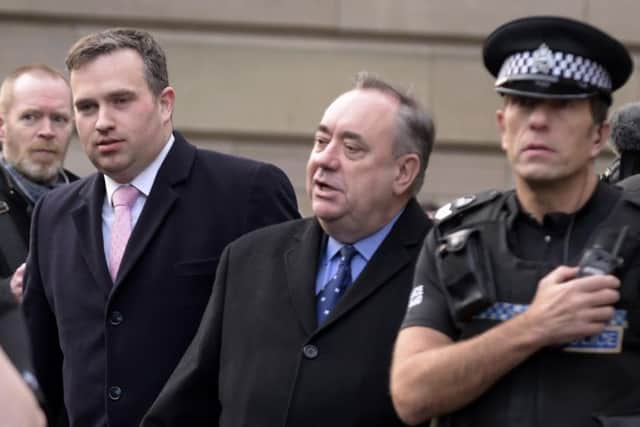Alex Salmond: ‘Unique’ case is not ‘unprecedented’, says Advocate
and live on Freeview channel 276
Many people are asking whether Alex Salmond, with his major public profile, could possibly get a fair trial in Scotland if any charges proceed.
If challenged, the court’s answer will be considered in the context of the publicity around the allegations. To date no case in Scotland has been stopped because of prejudicial publicity and that’s despite there having been some high-profile cases that attracted considerable, sometimes extremely prejudicial, media attention.
Advertisement
Hide AdAdvertisement
Hide AdThese cases were different in that the accused were not well-known public figures, but it was argued that publicity about the allegations could prejudice any trial.


I wouldn’t call this case unprecedented, but it has its own unique aspects. However, the challenges for the court have been considered before. Two examples are the trial of William Beggs for what became known as the “Limbs in the Loch” murder, and that of Nat Fraser, who was accused of killing his wife, Arlene. There had been a great deal of reporting about the cases and the courts had to decide whether fair trials could be achieved.
In both situations, the courts decided the cases could proceed fairly, referring to the safeguards of the passage of time between any publicity and a trial; the focusing effect for a jury of listening to the evidence; and the strong directions given to a jury in such cases to decide only based on evidence they hear in court.
Those representing Salmond may argue that he is uniquely well-known and that some allegations against him have, to an extent, been canvassed in the media.
Advertisement
Hide AdAdvertisement
Hide AdThey may say that it will be almost impossible to find jurors who have never heard of him. But that doesn’t matter – more to the point is whether it will be possible to find jurors that are untainted by prejudicial knowledge about the allegations.
The Crown will say Contempt of Court rules apply and no-one can now publish anything that might prejudice the trial. There is now significant protection in place and the media can only really report on procedural aspects such as the fact he has been charged.
Very senior people at the Crown Office will be involved in decisions about possible proceedings once they have seen all statements and reports. Meantime, everyone on social and all other media must observe our strict rules about reporting live cases.
John Scott is a QC Solicitor Advocate and president of the Society of Solicitor Advocates